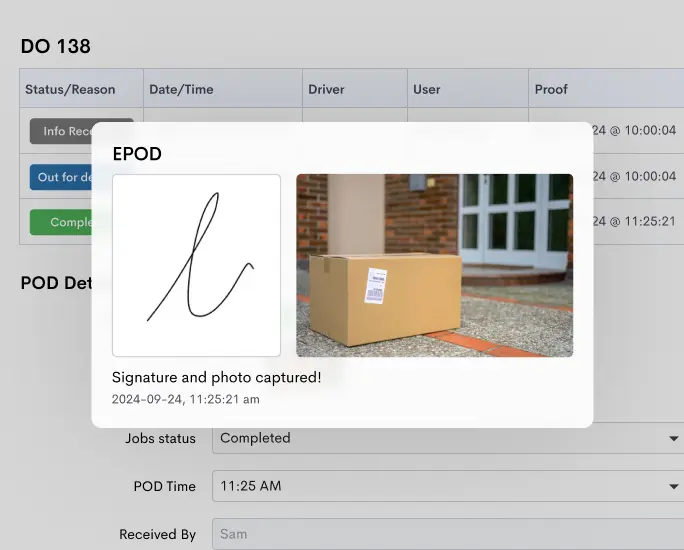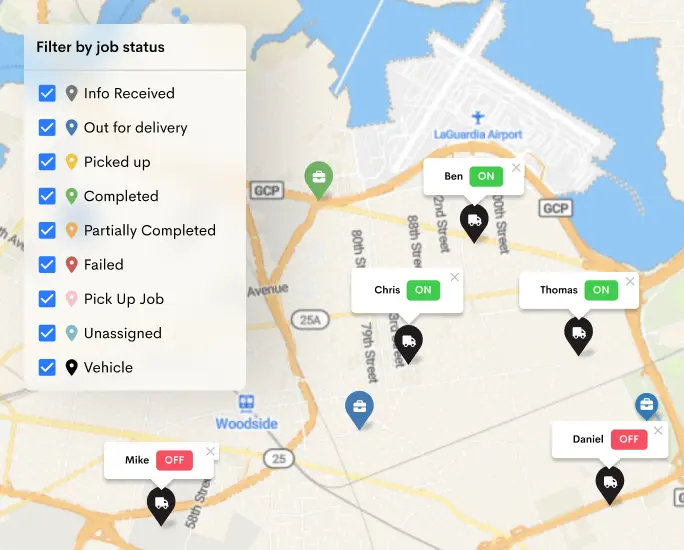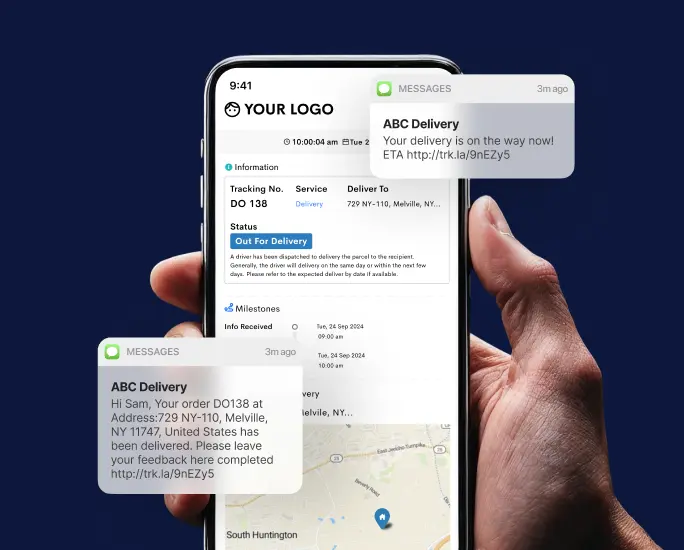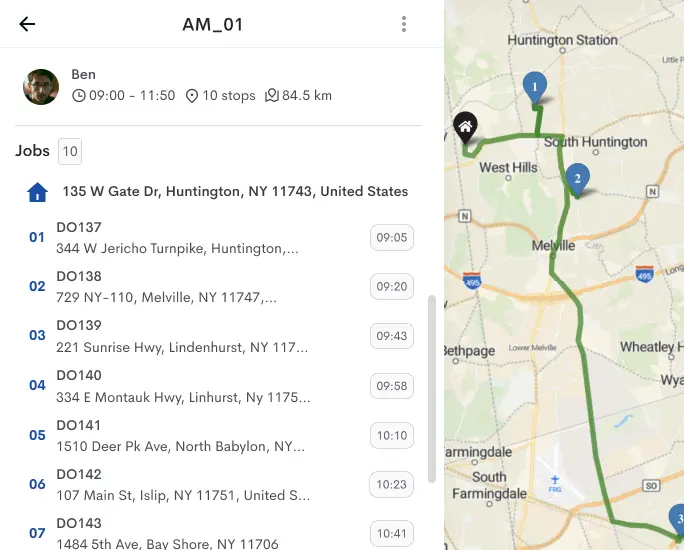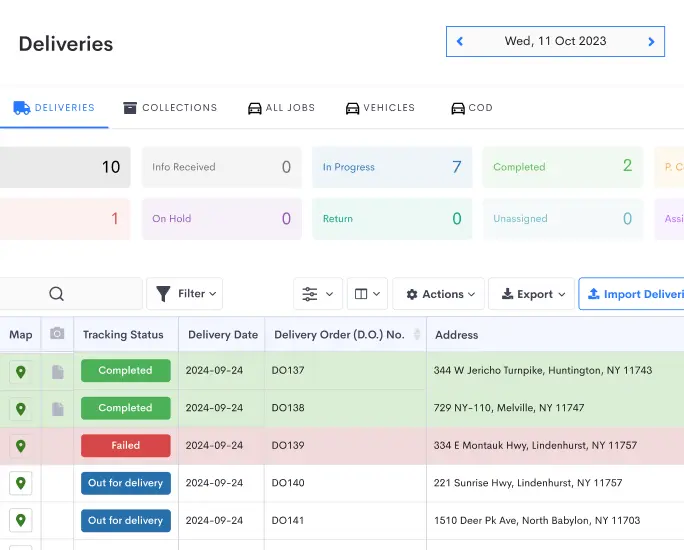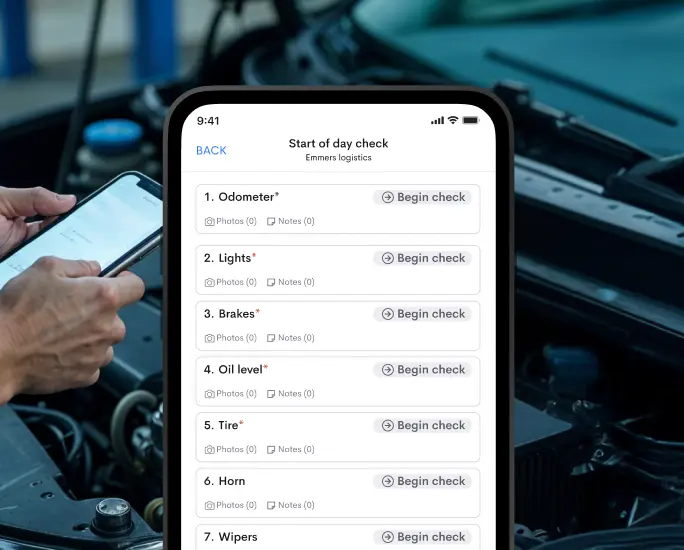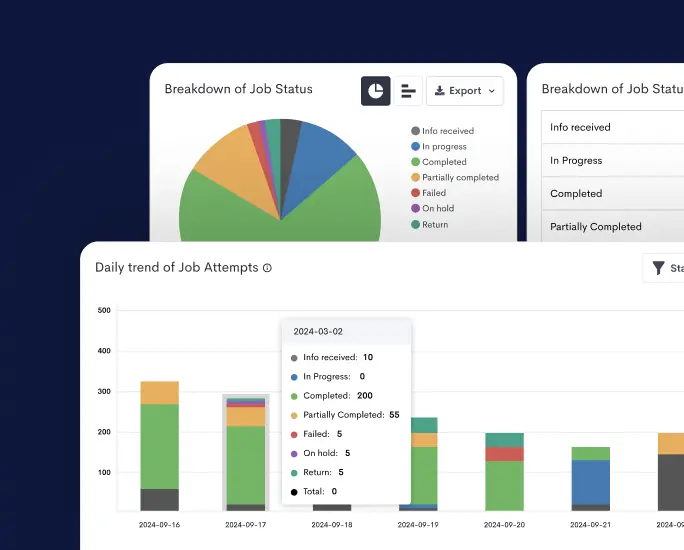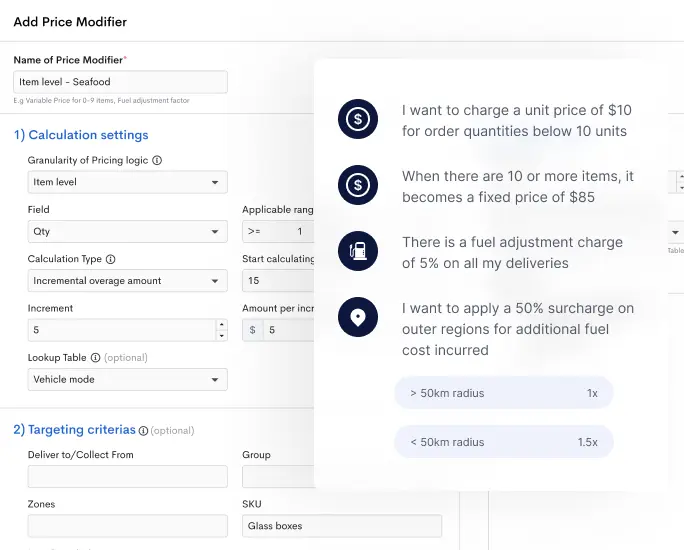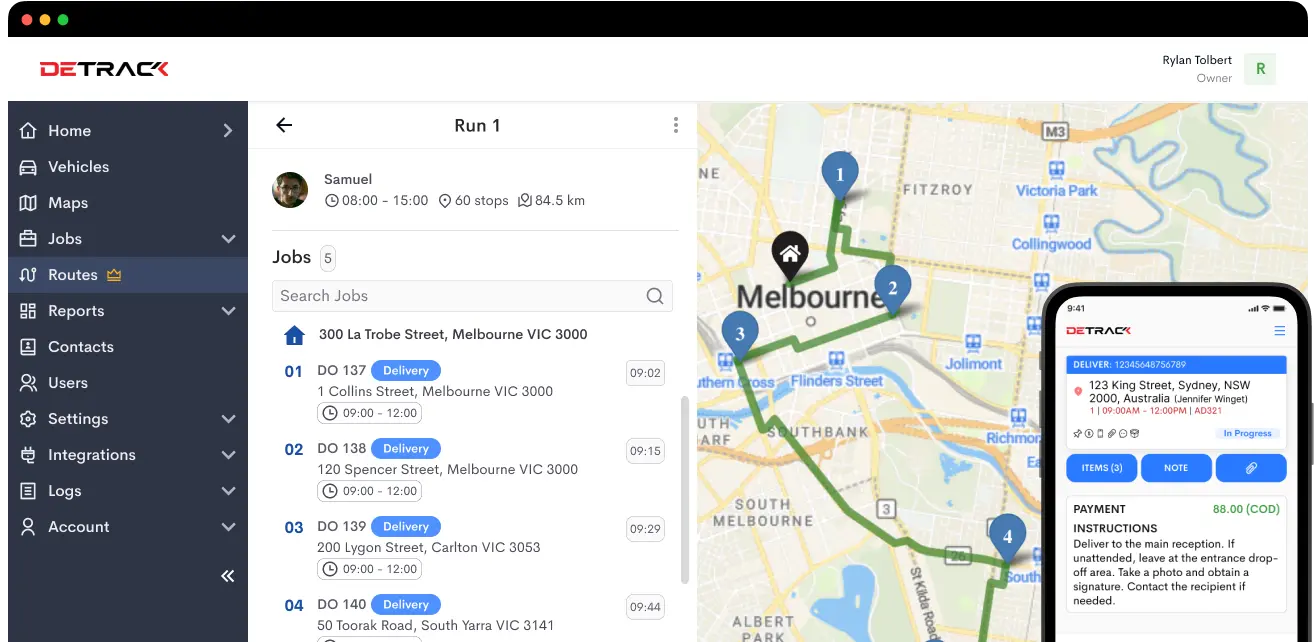Are you wondering how to start a medical transportation business? Starting your non-emergency medical transportation (NEMT) business can be an exciting and rewarding venture that provides services to those in need.
However, many steps are involved in properly launching a business. A successful strategic plan is essential as you leap from idea to reality.
In this post, we’ll provide practical guidance on starting a medical transportation business from scratch—from researching and creating a solid foundation to marketing and developing sustainable procedures.
Whether you’re just starting or have been running your enterprise for years, these tips will help you remain competitive in today’s market!
|
Boost Operational Efficiency with Detrack Streamline your NEMT operations with Detrack’s automated systems, reducing administrative burdens and allowing your team to focus on providing excellent patient care. |
What Exactly Is A Non-Emergency Medical Transportation (NEMT) Businesses?
Non-Emergency Medical Transportation (NEMT) is a service provided to people who need to get to and from medical appointments but do not require an ambulance. This type of transport may be necessary for those with limited mobility or access to private transportation.
NEMT services typically include wheelchair vans, ambulette services, regular van services, and stretcher vans.
Wheelchair vans are designed to transport individuals in wheelchairs, while ambulette service provides wheelchair-accessible transportation for those who need additional assistance getting in and out of vehicles.
Regular van service transports ambulatory patients, while stretcher vans provide transportation for those who require medical monitoring during transit.
NEMT also includes services such as a stretcher, lift-equipped van, or ambulance service for those who require additional medical support.
All these types of transportation allow individuals to receive the healthcare they need without worrying about getting there on their own. With NEMT, people can get to and from their appointments safely, comfortably, and promptly.
Benefits Of Setting Up A NEMT Business
If you’re looking to start a business that helps those in need, a Non-Emergency Medical Transportation (NEMT) business could be the perfect fit.
With flexible hours and the opportunity to network and work with many different types of people each day, setting up a NEMT business can be a smart move, professionally satisfying, and profitable!
Here are some of the top reasons why you should start a medical transportation business:
- A Growing Industry. The non-emergency medical transportation (NEMT) industry is growing rapidly and is expected to continue for the foreseeable future. This is due in large part to the aging population, as seniors are more likely to need NEMT than younger people.
- A Lucrative Business. Non-emergency medical transportation (NEMT) businesses can be quite lucrative. This is because there is a constant demand for NEMT services, and the costs of starting and operating a NEMT business are relatively low. Additionally, NEMT businesses often have high profit margins, as they can charge premium rates for their services.
- A Flexible Business. Another advantage of starting a NEMT business is that it is very flexible. This means you can choose your hours and operate your business in any location you desire.
- A Rewarding Business. Not only is starting a NEMT business a financially rewarding endeavor, but it is also very rewarding in terms of the satisfaction you will receive from helping others. Many people who use NEMT services are elderly or disabled and are unable to transport themselves to doctor’s appointments or other necessary appointments. As such, you will provide much-needed service to those who truly need it.
How Much Does It Cost To Start An NEMT Business?
The cost of starting an NEMT business varies depending on the size, scope, and complexity of your services. Generally speaking, you can expect to invest between $30,000 and $100,000 in upfront costs such as vehicles, licensing fees, and insurance.
Longer-term costs may include driver salaries and maintenance costs for vehicles. Your startup costs will also depend on whether you develop your IT system or purchase existing software solutions.
Marketing expenses such as website development, advertising, and PR should also be considered. Considering all of these factors, it’s important to create a realistic budget before getting started to ensure that your business is financially viable.
It’s also worth mentioning that the cost of starting a transportation business is not limited to upfront expenses. You’ll need to set aside money for ongoing operational costs such as fuel and maintenance.
You should also factor in the cost of compliance with regulations, as fees may be associated with obtaining necessary permits and licenses. Finally, budget for unexpected costs that may arise during your business operations.
Is It The Right Business Right For You?
Starting a non-emergency medical transportation (NEMT) business may be the perfect step for entrepreneurs looking to enter the healthcare industry.
With its relatively low barrier to entry and flexibility of services, NEMT can provide an excellent opportunity for those seeking to build a successful enterprise.
However, it is essential that prospective business owners carefully weigh the financial and operational commitments needed before launching a venture.
NEMT business owners must have access to vehicles, drivers, and other necessary resources.
Before deciding if NEMT is right for you, consider the costs associated with vehicle maintenance, salaries for staff members like drivers and dispatchers, insurance premiums, advertising investments, and other overhead expenses.
Similarly, entrepreneurs should consider the time and effort needed to ensure compliance with state laws, local regulations, and other applicable rules.
In addition to financial considerations, business owners must decide what type of NEMT services they’d like to offer.
Will you be providing simple taxi rides for people with disabilities? Do you plan on providing door-to-door service for elderly and disabled individuals?
Maybe you’d like to offer courier services for medical supplies such as specimen collections. Each of these options brings different challenges, costs, and opportunities.
Setting Up Your Non-Emergency Medical Transportation (NEMT) Businesses
Here are the steps involved when starting a medical transportation company:
Register your business
It’s time to register your business. If you plan on setting up a Non-Emergency Medical Transportation (NEMT) business, take the necessary steps to make that happen.
Depending on the type of business you are registering, you may need to register with either state and local government or federal agencies. Many NEMT businesses even interact with state Medicaid departments in addition to conventional business registration.
So, ensure all the required paperwork is complete before officially launching your new venture. Registering your NEMT business correctly is paramount for protecting yourself and your customers from any potential legal issues that may arise later!
Acquire necessary licenses and permits
To get your Non-Emergency Medical Transportation (NEMT) business up and running, you must acquire several core licenses and permits.
Depending on the state and county you plan to operate in, you may need a business license, an operating permit or certificate of authority, a Motor Carrier Permit, a hazardous materials permit, and appropriate insurance coverage.
It would help if you took some time to research the specific regulations of each governing body you will have to deal with so that your application process is as smooth as possible.
This can be daunting, but remember that these licenses and permits are necessary to ensure that your business is compliant with local laws—they are not optional!
Consider partnering with healthcare providers or other organizations
Partnering with existing healthcare providers or other organizations can help you expand your services without investing additional resources in recruiting and managing new staff and vehicles.
An added benefit of a partnership is that it can increase visibility for both organizations—offering more exposure and building credibility.
Furthermore, an established healthcare provider can provide valuable advice on developing processes that comply with regulations governing NEMT businesses.
If partnering with an organization isn’t right for your business, other ways exist to access reliable medical transportation services for your clients.
Obtain proper insurance coverage
If you have decided to launch a non-emergency medical transportation (NEMT) business, purchasing proper insurance coverage is one of the most important steps.
Having adequate coverage will help you mitigate financial risks and ensure that your business is protected in case of unexpected accidents or legal issues.
The cost of a NEMT business insurance policy can vary greatly, depending on the type and size of your operation and other factors like the location and number of vehicles used.
It’s best to consult with several insurance companies to find the plan that best suits your needs and budget.
With comprehensive coverage and solutions provided through a professional insurer, you can go into business feeling confident that your NEMT company is secure.
Invest in reliable vehicles and equipment
One of the most important things to invest in upfront is reliable vehicles and equipment. By investing in quality vehicles, you’ll be helping ensure that your passengers arrive safely and on time for appointments or other needs.
You should also ensure you have the necessary safety items such as emergency lights, sirens, important medical equipment like oxygen tanks, and first aid kits. While these investments can be costly upfront, they are well worth it:
With the right equipment, you’ll have peace of mind knowing that your customers will receive safe and secure transportation.
Train and hire qualified drivers
Establishing and running a Non-Emergency Medical Transportation (NEMT) business can be an important service in your community. However, doing it correctly requires having the best person behind the wheel.
Conducting extensive background checks on drivers is essential for safety and security, in addition to ensuring that potential driving candidates meet all state requirements.
Additionally, you should always provide appropriate training to help new hires better understand how to interact with passengers, handle the physical limitations of clientele they may come across, and know the basics of vehicle maintenance.
Taking these proactive steps will enable you to have not only qualified but also trustworthy drivers so your business can run smoothly.
Implement effective marketing and customer service strategies
Every NEMT business must have a plan to reach potential customers and maintain solid relationships with them. The cornerstone of success is effective marketing and customer service strategies.
For example, one marketing strategy might be creating an informative website that helps potential customers easily identify services offered, pricing information, and answers to frequently asked questions.
Social media ads can be run to promote the business, and content can be created to amplify brand presence on search engines.
However, even with the most awesome marketing plan in place, if your customer service standards are poor, it can all be undone. Make sure you always provide courteous customer service, prompt communications, and timely responses.
Start a Medical Transportation Business Now
Having delved into the intricacies of launching your non-emergency medical transportation (NEMT) business, what’s holding you back from turning your vision into reality?
These invaluable insights can serve as stepping stones towards bringing your dream to life, enabling you to assist individuals in your community and ensuring they reach their destinations with care and reliability.
With unwavering commitment and diligent effort, the sky’s the limit for the potential of your burgeoning enterprise.
In the realm of NEMT services, one of the key tools for success is Detrack. This innovative platform has become indispensable for NEMT businesses, offering real-time vehicle tracking that yields many benefits.
Try Detrack now!




